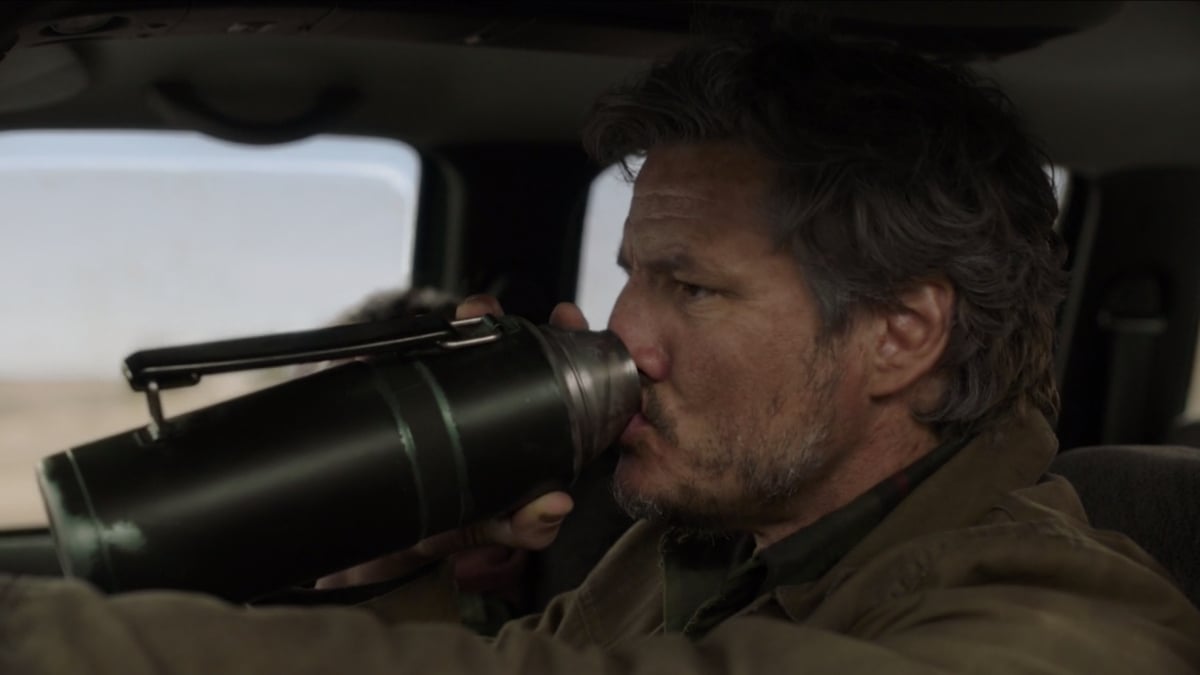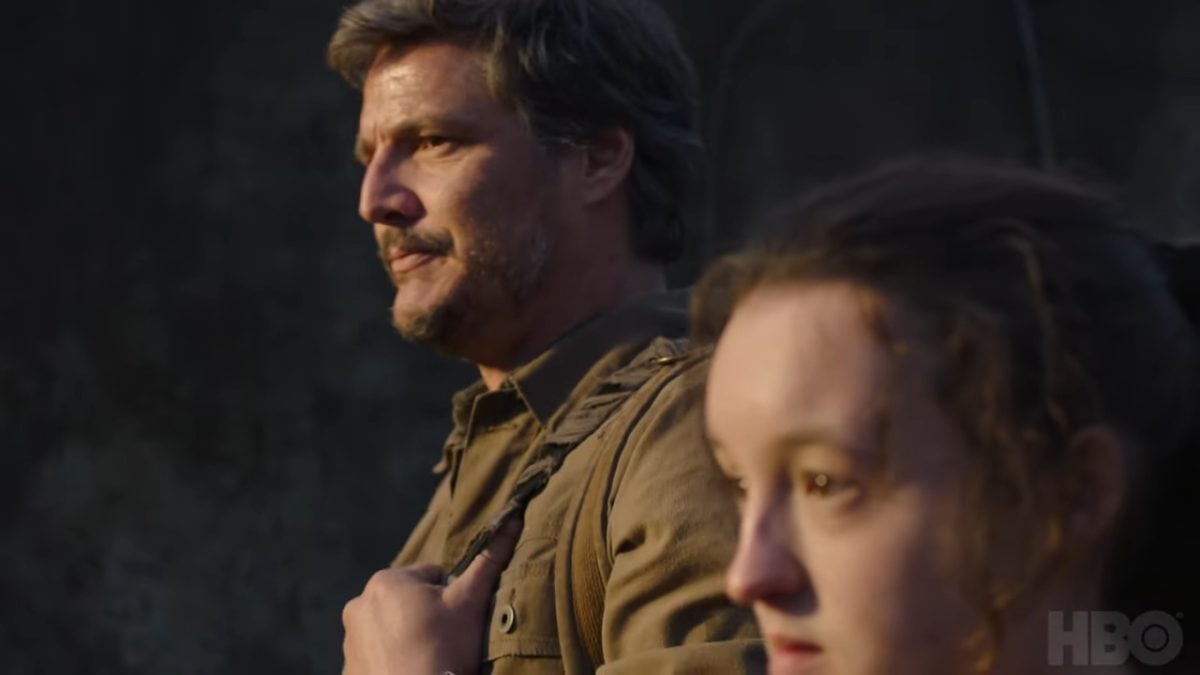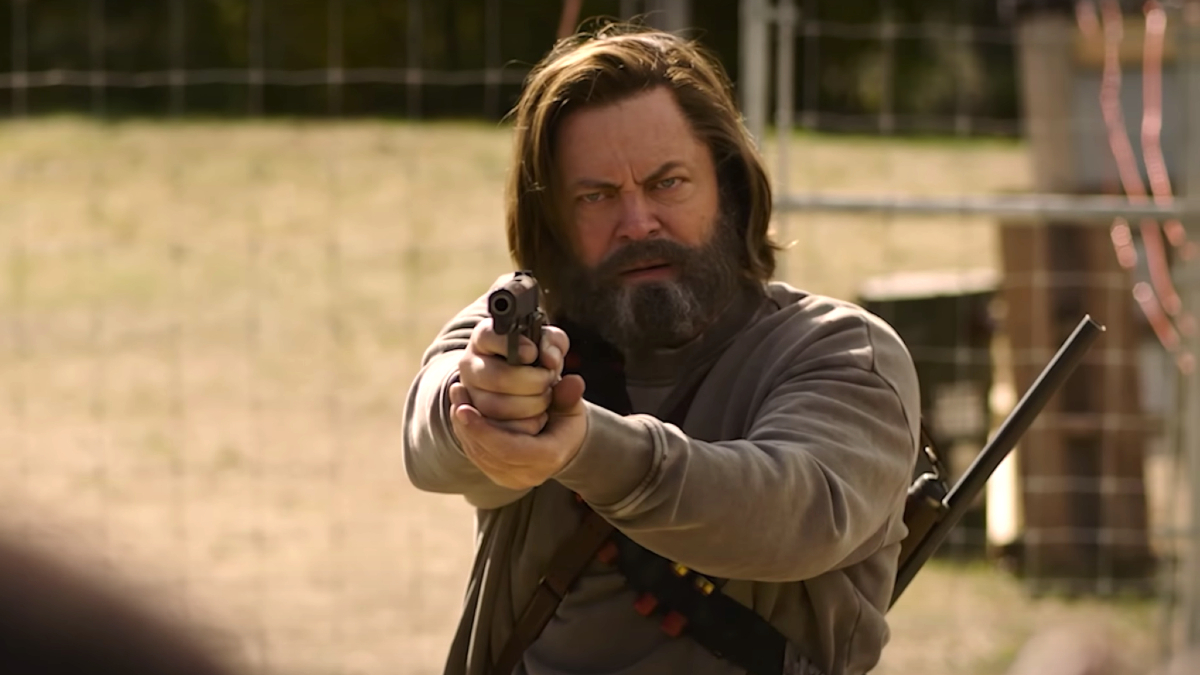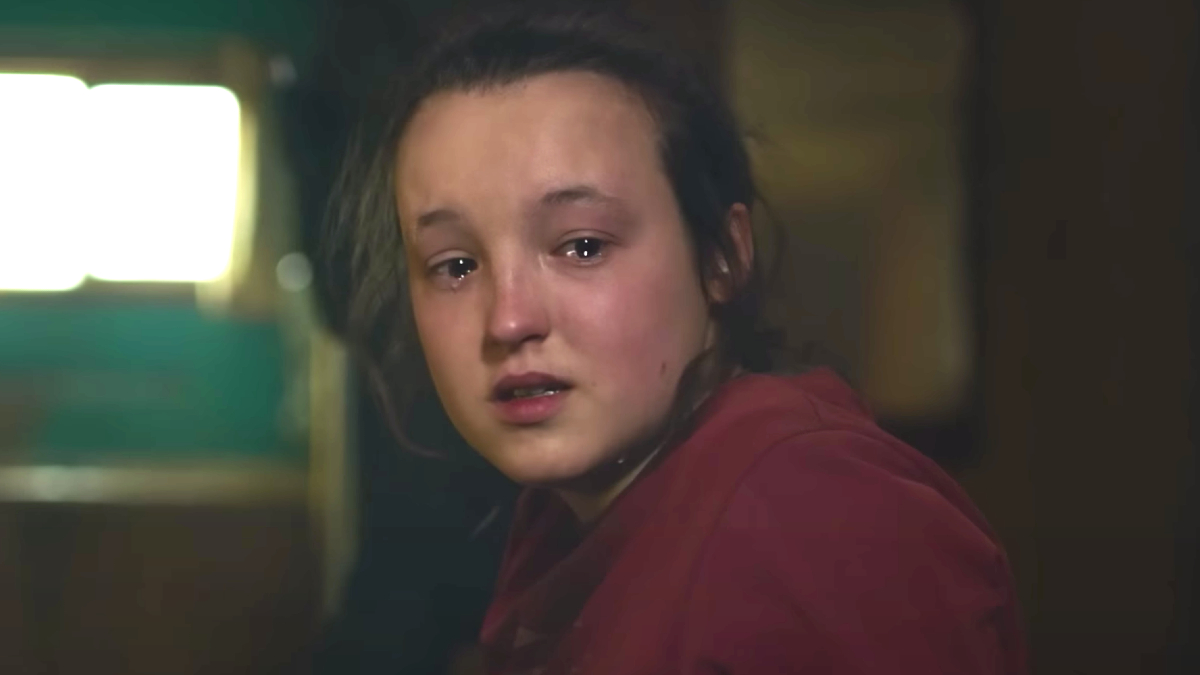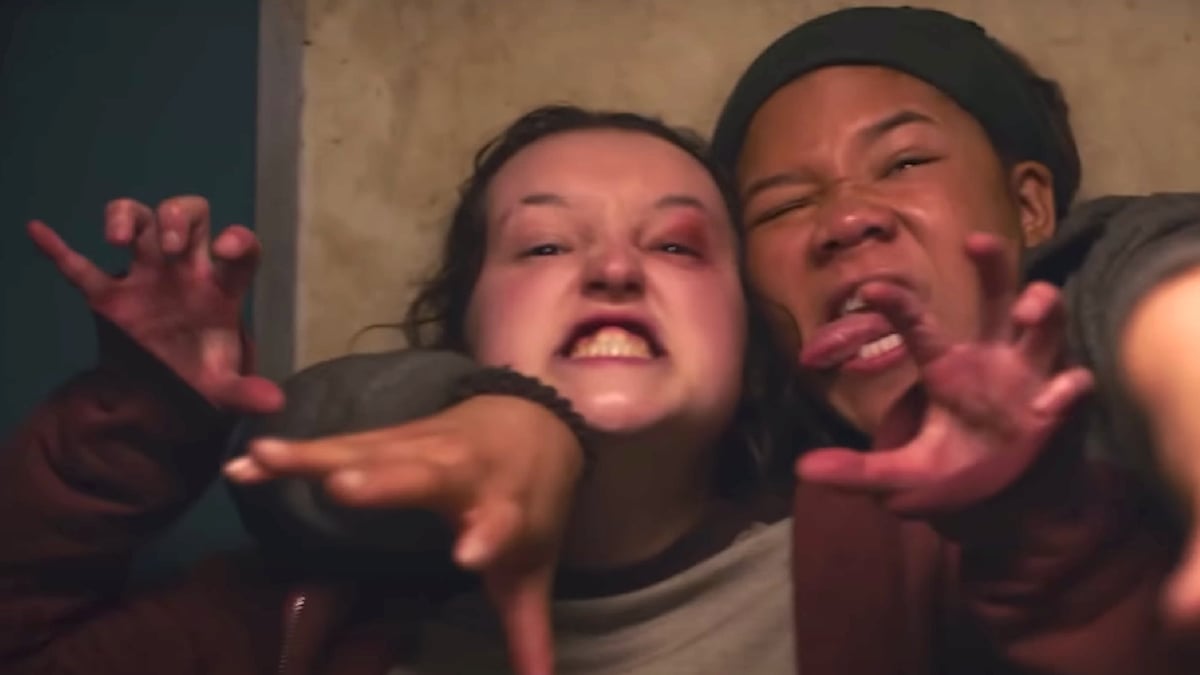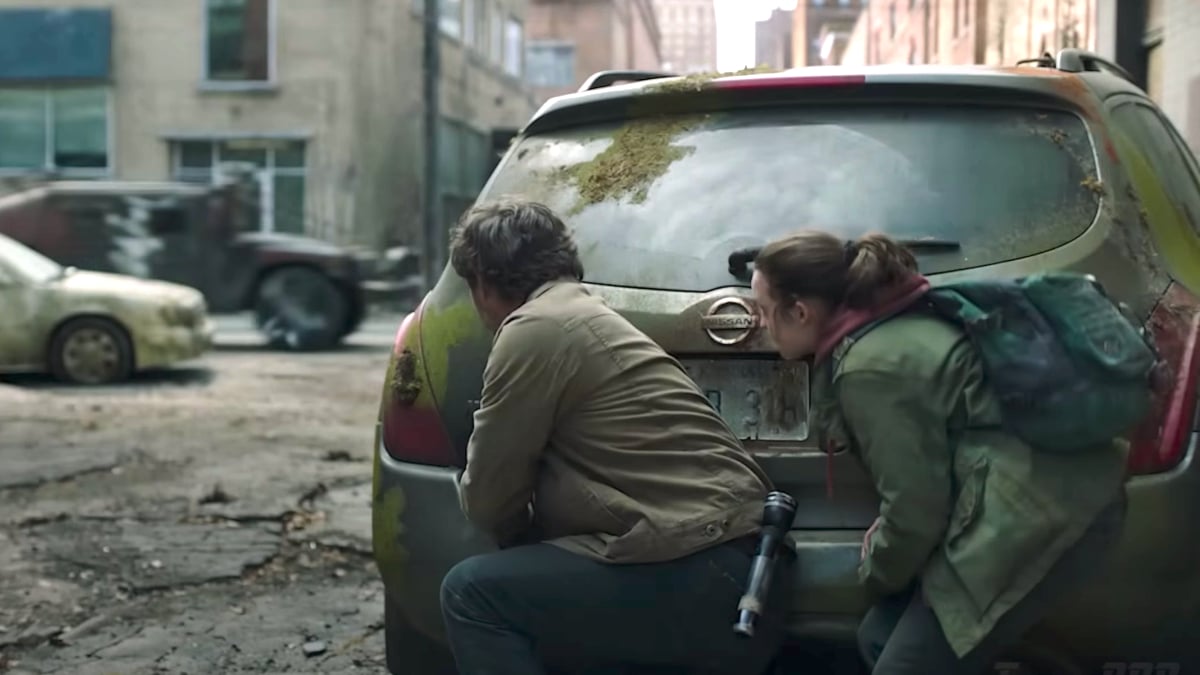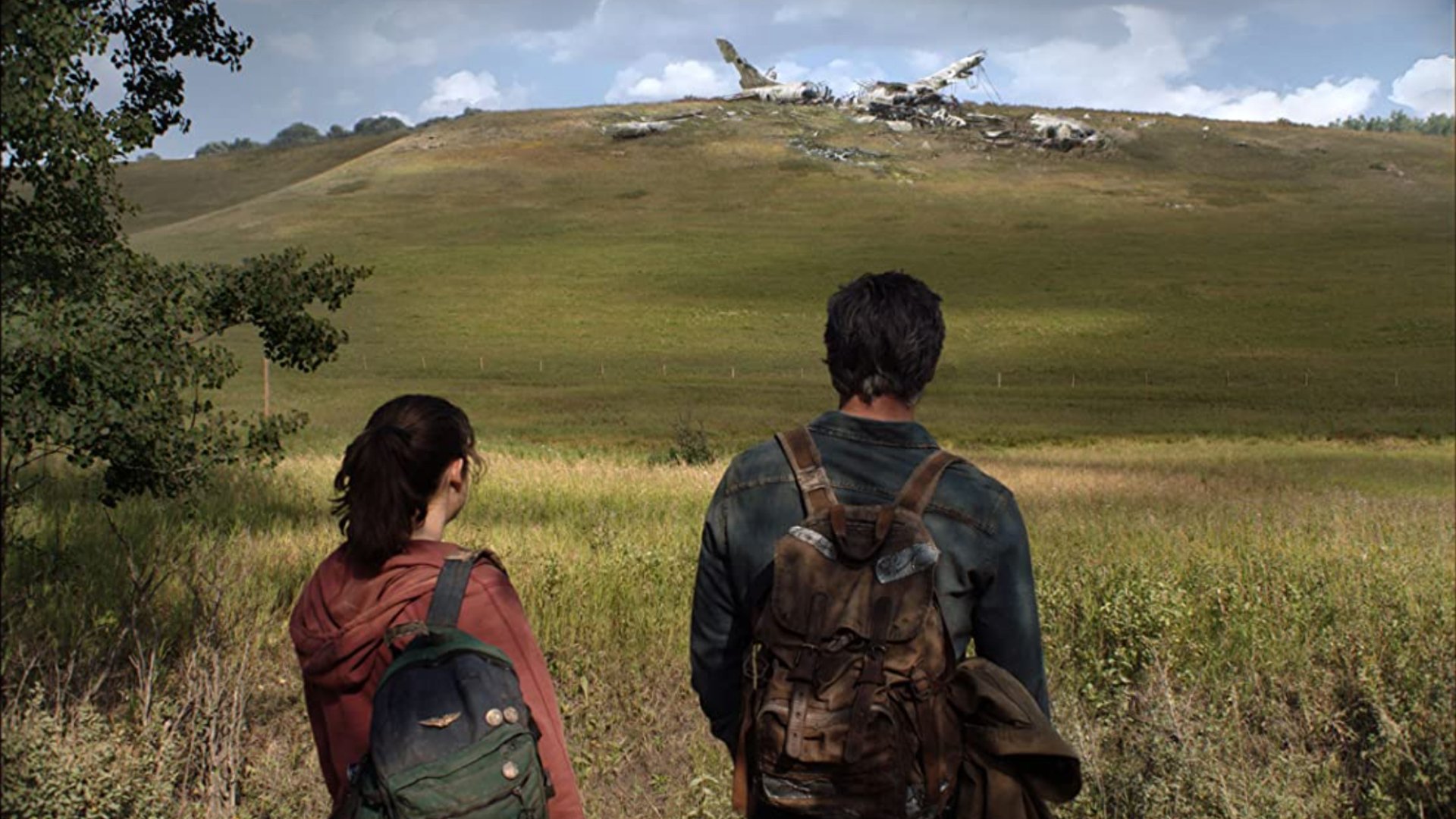Starbucks isn’t loosening its iron grip on the caffeine addicts of the world, even after its ended.
The fourth and most recent episode of HBO’s The Last of Us officially confirmed that Starbucks survived the apocalypse, and continued to thrive even as society broke down. Which, when you think of it, feels right on the money.
Like capitalism’s dual-tailed mascot, Starbucks managed to dig its heels in, as the Cordyceps virus ravaged the world over the course of a weekend, and emerged relatively unscathed. It set up shops — likely right around the corner from one another — in the Quarantine Zones set up by FEDRA (Federal Disaster Response Agency), and continued pumping sweet caffeine straight into the veins of the exhausted, befuddled masses.
This revelation emerged mid-way through Sunday’s episode, “Please Hold to My Hand,” when Ellie gets a whiff of coffee for the first time. Like most kids, she isn’t impressed by the harsh scent, and teases Joel for his enjoyment of the beverage. Later, in the car, she expresses her surprise that coffee is “what those Starbucks in the QZ used to sell.”
This quick confirmation that Starbucks survived the apocalypse, even as society itself broke down, feels like peak capitalism. Its also not the first time Starbies has survived an apocalyptic event. The coffee giant also stayed afloat in Idiocracy, though its menu changed somewhat as mankind edged further and further from intelligence.
Fans were tickled at the brand name inclusion in episode four of the emotionally-gripping series, and quickly poked fun at the notion of a venti pumpkin spice latte surviving where the U.S. government — in its current form, at least — could not.
Viewers were also quick to point out that Starbucks wasn’t the only name-drop in episode four. Joel also gave the great Chef Boyardee a shout-out, and made quite a few viewers nostalgic for a good old can of bland, half-warmed pasta squares.
This isn’t HBO’s first time including Starbucks in a series, either. A nod to the behemoth coffee chain was also dropped in an episode of Game of Thrones, but we don’t think the marketing was quite so purposeful.

